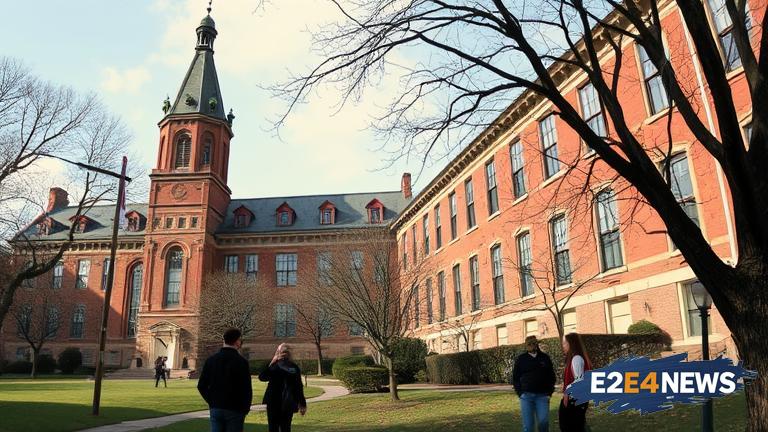The settlement, which was announced earlier this year, comes after an investigation into allegations of anti-Semitism at the college. The probe was sparked by complaints from Jewish students, including Katie Aryeh, who claimed that they had faced discrimination and harassment on campus. According to the students, the college had failed to adequately address their concerns, leading to a hostile environment for Jewish students. The investigation found that the college had indeed violated Title VI of the Civil Rights Act, which prohibits discrimination on the basis of race, color, or national origin. As a result of the settlement, Barnard College has agreed to take steps to improve its response to allegations of anti-Semitism, including providing training for staff and faculty on how to identify and address anti-Semitic incidents. The college will also establish a new protocol for investigating and responding to complaints of anti-Semitism, and will increase funding for programs and initiatives that promote diversity and inclusion. The settlement has been welcomed by Jewish students and advocacy groups, who see it as a major turning point in the fight against anti-Semitism on campus. Katie Aryeh, one of the students who filed the complaint, said that she was ‘thrilled’ with the outcome, and hoped that it would send a message to other colleges and universities that anti-Semitism would not be tolerated. The settlement is also seen as a victory for the broader Jewish community, which has been vocal in its concerns about rising anti-Semitism on college campuses. According to a recent report, there has been a significant increase in anti-Semitic incidents on campus in recent years, with many students reporting that they have felt intimidated or harassed because of their Jewish identity. The settlement is likely to have implications beyond Barnard College, with other colleges and universities taking note of the need to improve their response to anti-Semitism. The US Department of Education’s Office for Civil Rights has also signaled its commitment to addressing anti-Semitism on campus, with officials saying that they will be closely monitoring colleges and universities to ensure that they are complying with federal law. In addition to the settlement, there have been calls for greater awareness and education about anti-Semitism, with many arguing that it is essential to address the root causes of the problem. This includes providing education and training about Jewish history and culture, as well as promoting diversity and inclusion on campus. The settlement has also highlighted the importance of Jewish students feeling supported and empowered to speak out against anti-Semitism. By providing a safe and inclusive environment, colleges and universities can help to ensure that Jewish students are able to thrive and reach their full potential. Overall, the settlement is a significant step forward in the fight against anti-Semitism on campus, and is likely to have a lasting impact on the Jewish community and beyond.
